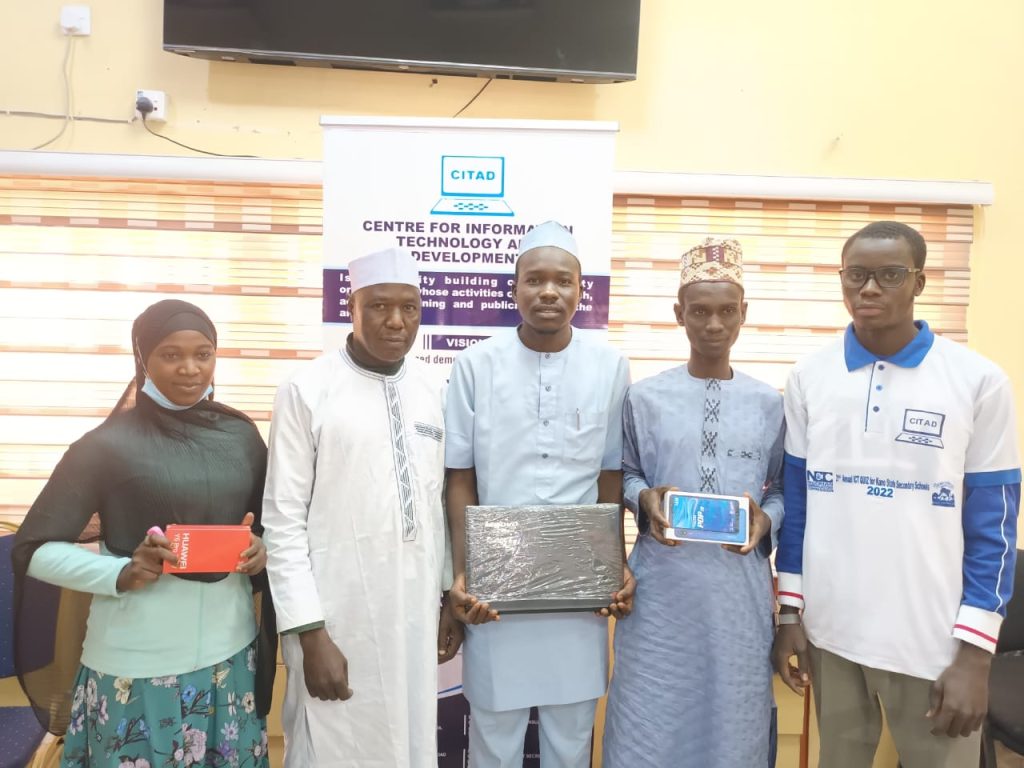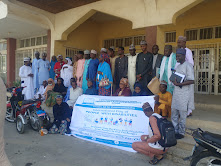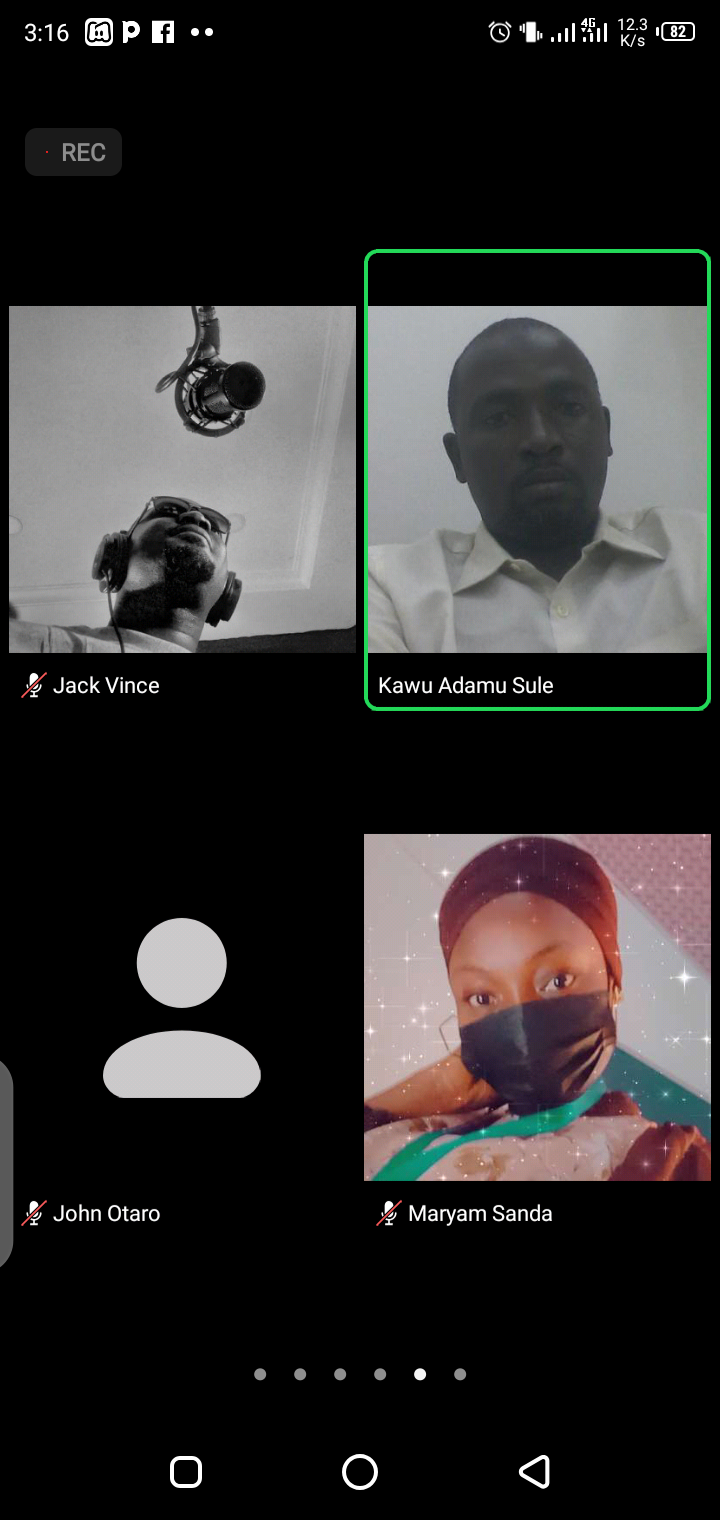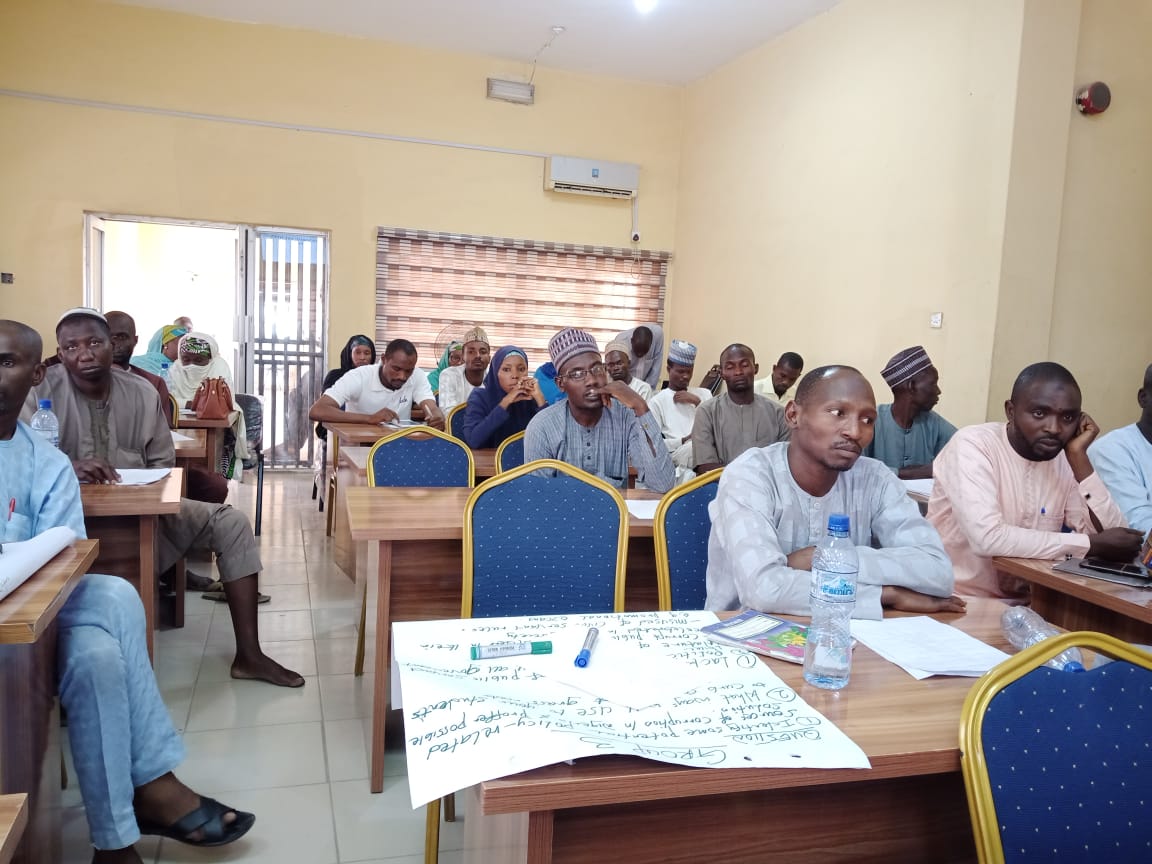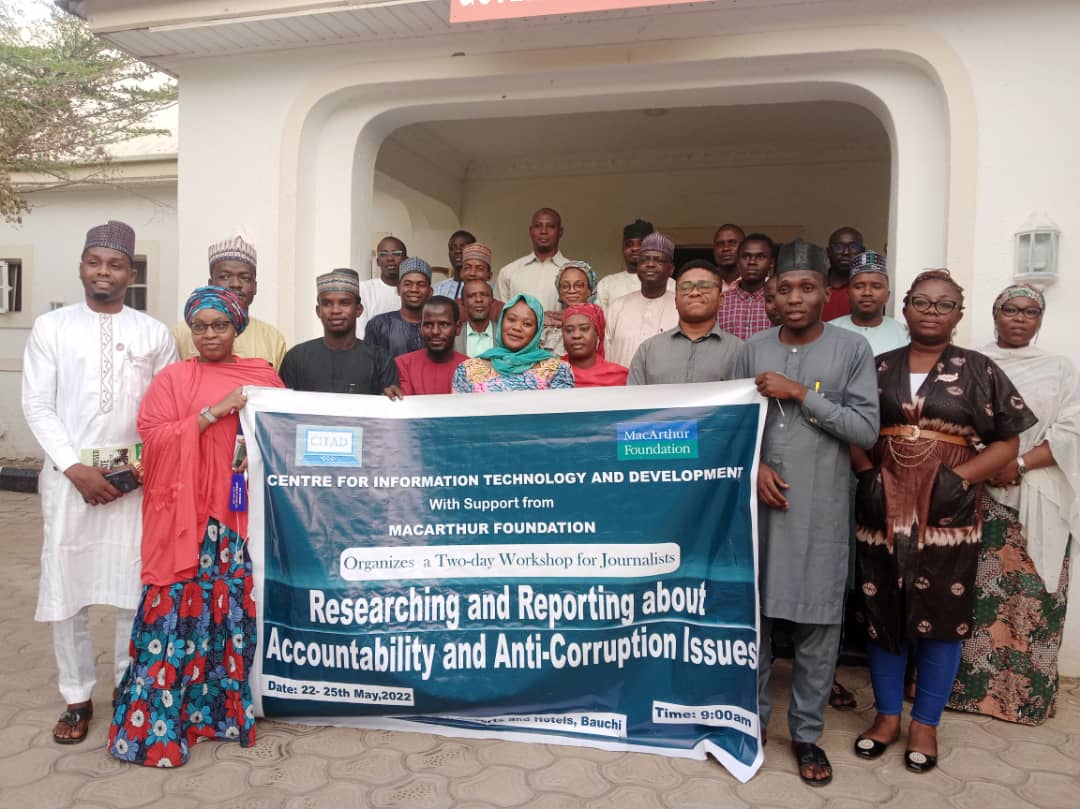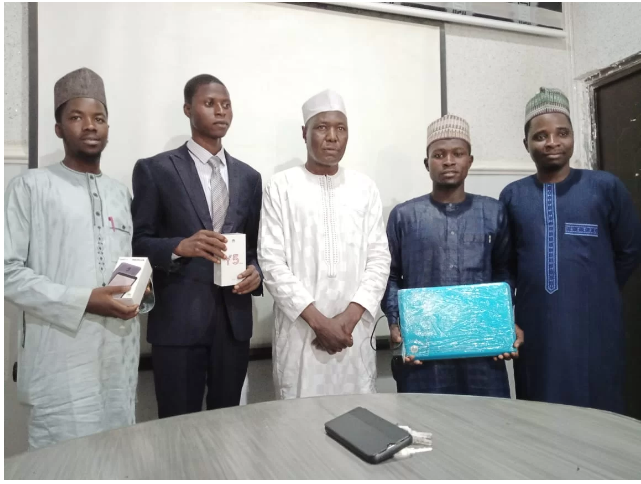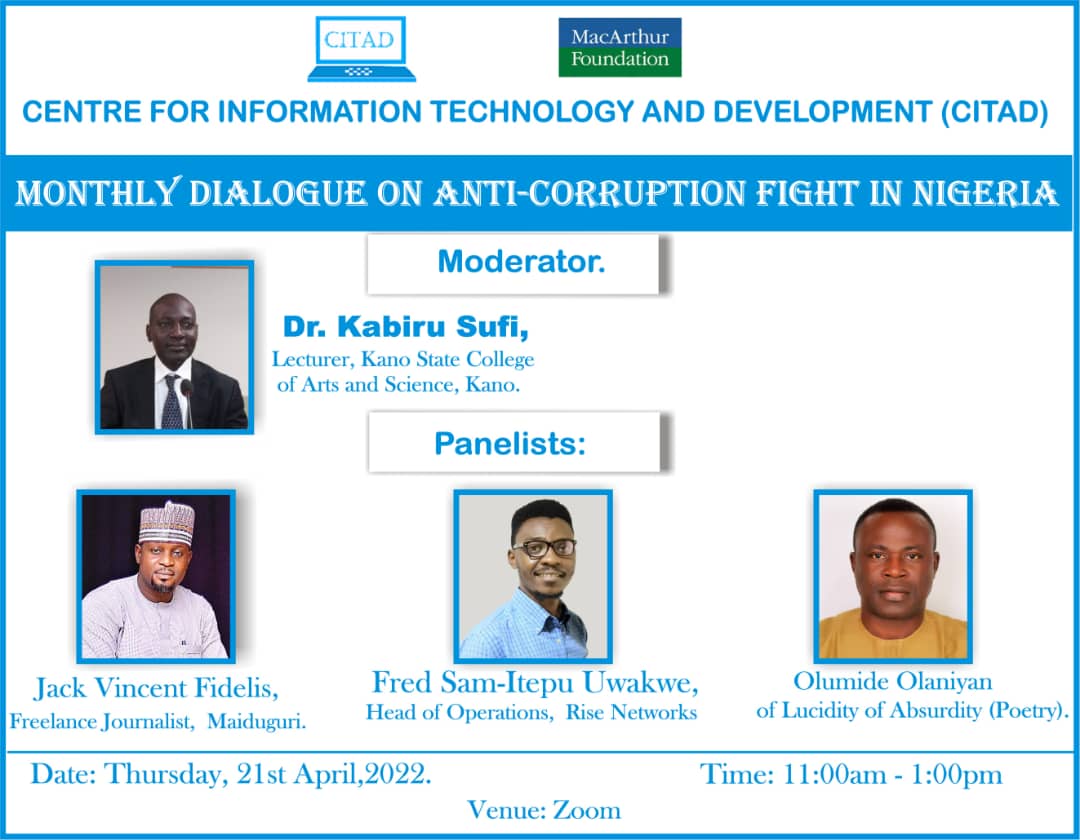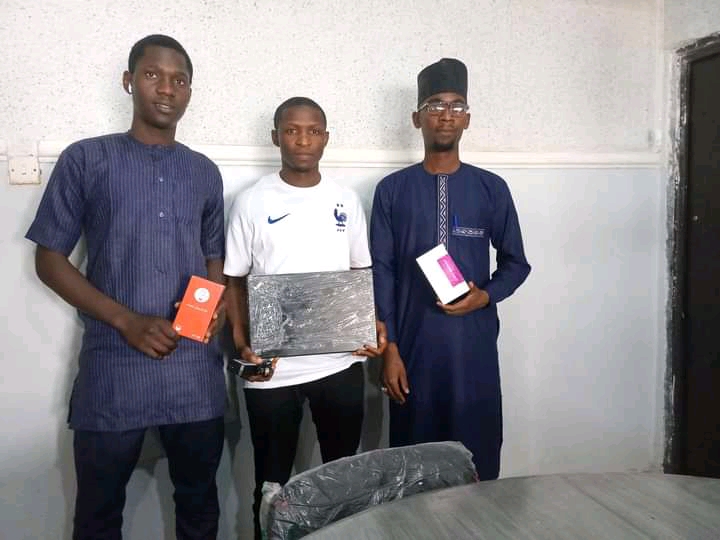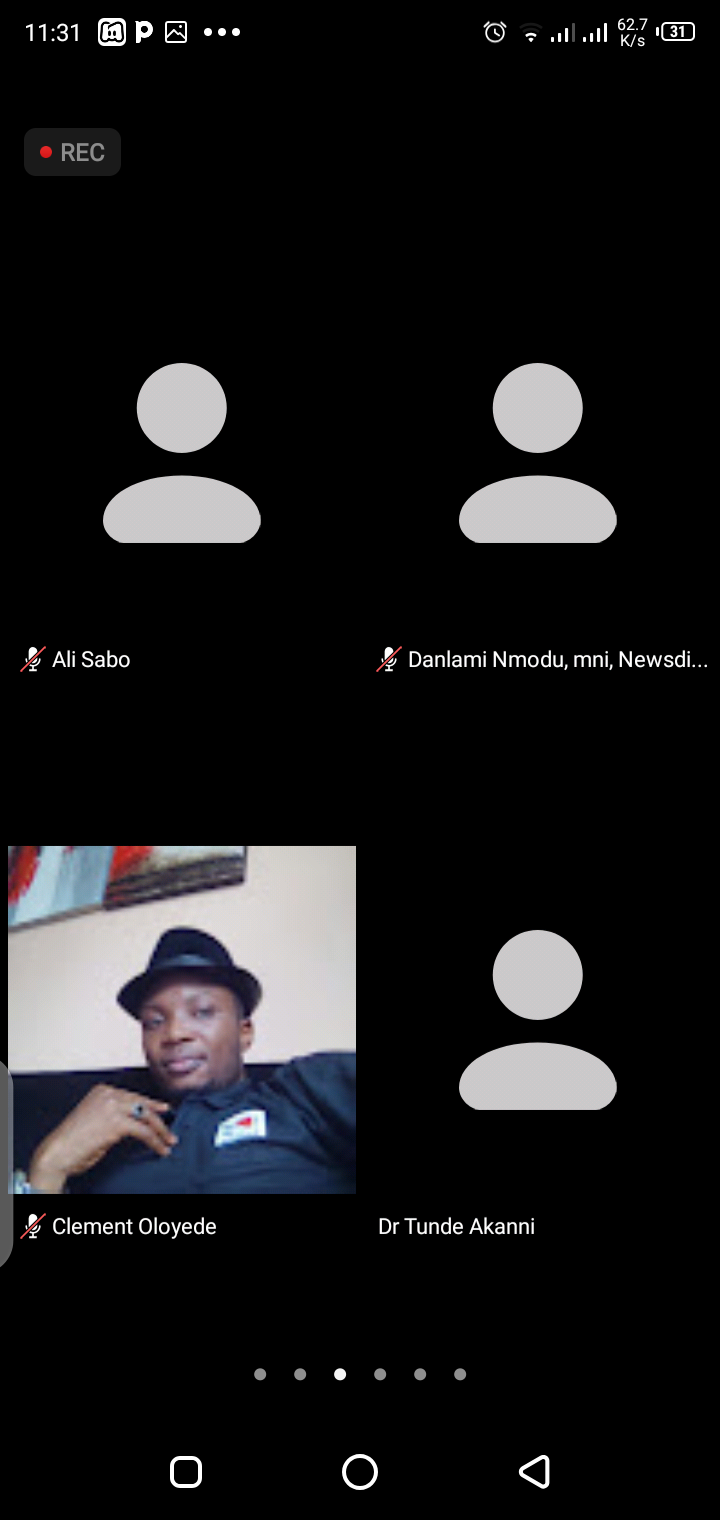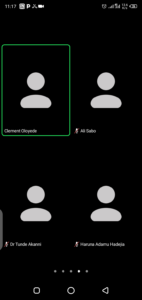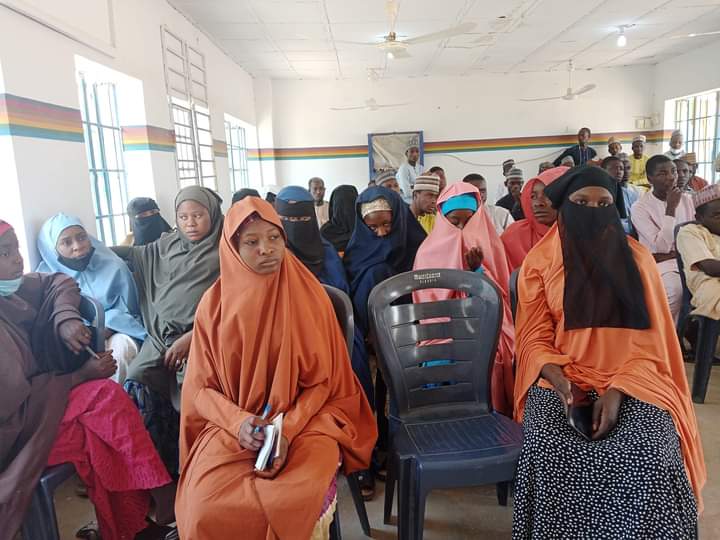(SERIES ONE)
By
Sagiru Ado Abubakar
In its effort to provide students with knowledge and skills to fight corruption and contribute in
raising young people who will assist and contribute in the fight against corruption Nigeria, the
Centre for Information Technology and (CITAD) has on Thursday, 2 nd June, 2022 conducted the
first of its four series Training Workshop for the 36 secondary school teachers from 18 senior
secondary schools across Kano state. The workshop served as Master Training to build the
capacity of the selected teachers which in return will step down the training to the anti-corruption
clubs formed in their respective schools.
CITAD has been implementing a project titled ‘Engaging Students of Secondary Schools for
Raising Awareness about Corruption and Accountability’ supported by MacArthur
Foundation, with the following objectives:
1. Inculcate in the minds of the students an early understanding of the negative impact of
corruption on the society
1. Use the opportunity of the engagements with the students to raise public awareness about
corruption and how to fight it
2. Encourage students to think critically on how to address the menace of corruption in the
society.
In his opening remarks, the Executive Director, Centre for Information Technology and
Development (CITAD), Malam YZ Ya’u said today in Nigeria corruption has become a major
hindrance to the development of the country. We have seen in daily basis corruption cases in the
country and we have to widen our knowledge to understand that corruption is not only about
public sectors, it is about what is wrong and what is right. To fight corruption, we must teach our
young ones good values and ethics especially the rule of law. This is to show young people that
there is law against corruption. Malam Y.Z continue to say that, we must ensure anti-corruption
agencies are above everyone with no exception and no one is above the law. As mentors,
CITAD expects you to go to the wider society to say no to corruption and teach them how to
learn to fight corruption. It is a big challenge that CITAD throws to the mentors but it is the only
way we can rid this menace out of our society especially if we succeed in integrating the fight
against corruption in the school curriculum. He then informed the participants that the workshop
is a pilot campaign to see whether we can convince school administrators that there is way we
can include anti-corruption fight in the way we teach our students. He finally mentined that the
activities of the project are to conduct inter-secondary schools quiz in the State, build the
capacity of some students and to update knowledge and skills of teachers in the area of fighting
corruption in secondary schools. One of the expected outcomes of the project is to support state
government to incorporate anti-corruption knowledge in the curriculum of secondary schools as
part of the Civic education syllabus.
To assess the participants’ knowledge about the workshop and establish what participants
already know, the participants were asked to write on sheet of papers their expectations of the
workshop. The following information was generated from the participants:
We expect to learn ways to prevent our students in participating in form of corruption in
and outside schools
CITAD as an IT organization, we expect to be taught the technological ways of fighting
corruption
To understand why corruption offenders are not been punished
To learn how to avoid taking corruption
To provide us with new ideas and logic that we can use to address the danger of
corruption to our students and other people in our society
To know the root of corruption and its types
Expecting to jointly eradicate the issue of corruption in the country
Through the help of EFCC and ICPC to be oriented about the consequences of corruption
To teach us the method and techniques to tackle corruption
To enlighten our students to read hard and shun away from all corruption practices
To add voice on the negative effect of corruption
To listen from the reliable source corruption related issues
In his remarks, Malam Umar Muhammad Yakasai, Director Training and Recruitment, Kano
Senior Secondary Management Board (KSSSSMB) said managing secondary schools requires
partnership and they are happy to have CITAD as their partners. He said that just last two weeks
teachers under his board were at CITAD for Guidance and Counseling workshop. He then added
that corruption is a theme that disturbs everybody and the country. He finally thanked CITAD for
bring them on board in this journey and mentioned that CITAD poetry publication on corruption
NGausa has been in circulation in their schools.
The first presentation was taken by Alh. Dalhatu Abdallah, Assistant Superintendent,
Independent Corrupt Practices and Other Related Offences Commission (ICPC) on
understanding the work of ICPC. Abdullahi said that ICPC receive and investigate complaints
from members of the public on allegations of corrupt practices and in appropriate cases,
prosecute the offenders. Also examine the practices, systems and procedures of public bodies
and where such systems aid corruption, to direct and supervise their review. Duties of the
Commission include section 6 (a-f) of the ICPC Act 2000 sets out the duties of the Commission
as paraphrased in the following:
To receive and investigate complaints from members of the public on allegations of
corrupt practices and in appropriate cases, prosecute the offenders.
To examine the practices, systems and procedures of public bodies and where such
systems aid corruption, to direct and supervise their review.
To instruct, advise and assist any officer, agency, or parastatal on ways by which fraud or
corruption may be eliminated or minimized by them.
To advise heads of public bodies of any changes in practice, systems or procedures
compatible with the effective discharge of the duties of public bodies to reduce the
likelihood or incidence of bribery, corruption and related offences.
To educate the public on and against bribery, corruption and related offences.
To enlist and foster public support in combating corruption.
With respect to the prosecution of cases, the Corrupt Practices and Other Related
Offences Act 2000 provide that every prosecution for offences under it shall be deemed
to be done with the consent of the Attorney-General. Furthermore, it is provided that the
Chief Judge of a State or the Federal Capital Territory shall designate a court or judge to
hear and determine all cases arising under the Act. Presently, there are two such
designated Judges in each State of the Federation and the Federal Capital Territory
• Malam Haruna Adamu made the second presentation titled ‘Understanding the Various
Dimensions of Corruption in Nigeria’. The presentation focused on the role of Anti-
Corruption Club Mentors with a view to identify and discuss less technical ways to
reduce corrupt practices in secondary schools. As a social environment, schools are the
best places where corruption can be analyzed and mitigation strategies taught for future
use by the future leaders (students). Haruna Adamu set the objectives of his presentation
as follows
• To identify the role of mentors on delineating Corruption and its effect on society to
secondary school students in Kano
• To strengthen the capacity of Anti-corruption club mentors on reducing corrupt practices
in the society
• To identify new mentoring strategies for Anti-corruption mentors in Secondary Schools
of Kano
• Develop a more realistic work plan for mentoring on Anti-corruption for secondary
schools in Kano
While talking about forms of corruption, Haruna said that corruption in Nigeria happens in
several ways and in different dimension. He criticized the law makers in the country who
according to him tried to institutionalized corruption. Adding that even lobbying from the law
makers can be a form of corruption. Other forms of corruption include, Extortion, Cronyism,
Nepotism of favoritism, Patronage, Graft and embezzlement, Bribery, receipt of illegal proceeds
(extortion, kickbacks), Theft and privatization of public resources and funds, Illegal
appropriation (forgery, falsification, embezzlement, misappropriation of money, property),
Abuse of state funds, waste, Nepotism, favoritism (appointment to the posts of relatives and
friends), Collusion (granting preferences to individuals, conflict of interests), Taking gifts to
speed up problem-solving, Protection and covering up events, Electoral violations (buying votes,
rigging election results), Extortion (civil servants illegally set a fee for services or artificially
create a deficit), Clientelism and patronage (politicians provide material services in exchange for
citizen support), Illegal contributions to election campaigns (transfer of gifts to influence the
content of the policy), Abuse of power through (intimidation or torture) and Manipulation of
regulation (falsification of elections, decision-making in favor of one group or person).
He finally urged the school mentor to play the following roles in the ANTI-corruption Clubs:
• Develop and implement the Anti-corruption modules for students
• Demystify all Anti-corruption terms to students for ease of understanding, ownership and
sustainability
• Facilitate partnerships among students and
• Create interface between Anti-graft body and the students
Malam Idris Isyaku, Head of Public Affairs, Economic and Financial Crimes Commission
(EFCC) represented EFCC Zonal Commandant at the workshop. He talked about the work of the
commission. He explained that Economic and Financial Crimes Commission (EFCC) is a
Nigerian law enforcement agency that investigates financial crimes such as advance fee fraud
(419 fraud) and money laundering. EFCC was established in 2003, partially in response to
pressure from the Financial Action Task Force on Money Laundering (FATF), which named
Nigeria as one of 23 countries non-cooperative in the international community's efforts to fight
money laundering. The agency has its head office in Abuja, Nigeria. Adding that while the ICPC
targets corruption in the public sector, especially bribery, gratification, graft, and abuse or misuse
of office, the EFCC investigates people in all sectors who appear to be living above their means,
and is empowered to investigate and prosecute money laundering and other financial crimes.
Ali Sabo, CITAD Communication Officer, presented paper titled ‘Assessing the Ant-Corruption
Efforts in Nigeria Since 1999: Challenges and Prospects’. At the end of his presentation, he
divided the participants into three groups and asked each group to:
1. Identify some potential policy-related sources of corruption in Nigeria and proffer
possible solution
2. Ways use to curb corruption at grassroots level
